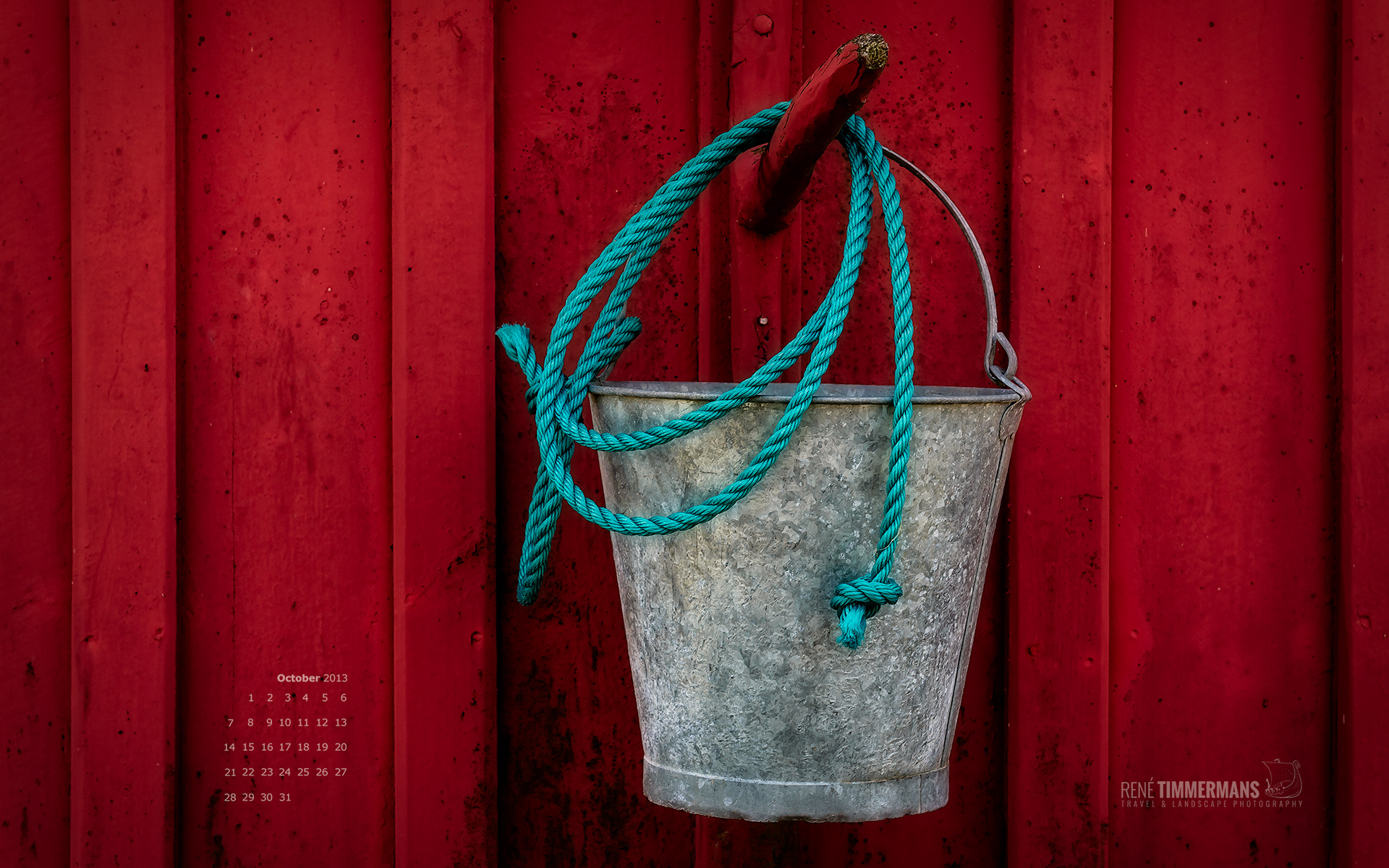The October 2013 wallpaper shows an empty bucket against the backdrop of a traditional Swedish red summerhouse. The photo was taken in the outskirts of the Stockholm archipelago on the island of Sandö.
Here is some background information (source: wikipedia.org) about the traditional Swedish red colour used on houses:
Falu red or Falun red is the name of a Swedish deep red paint well-known for its use on wooden cottages and barns. The paint originated from the copper mine at Falun in Dalarna, Sweden. The traditional colour remains popular today due to its effectiveness in preserving wood.
The earliest evidence of its use dates from the 16th century. During the 17th century Falu red was commonly used on smaller wooden mansions, where it was intended to imitate buildings with brick facing. Except in bigger cities like Stockholm and Gothenburg, and in the far south of Sweden, wood was the dominating building material. In the Swedish cities and towns, buildings were often painted with Falu red until the early 19th century, when the authorities began to oppose use of the paint. At that point in time more and more wooden buildings in urban areas were either painted in lighter colours (e.g. yellow, white) or sided with stucco. The number of buildings made of bricks (with stucco) also increased. However Falu red saw a surge in popularity in the countryside during the 19th century, when also poorer farmers and crofters began to paint their houses. Falu red is still widely used in the Swedish countryside.
The actual colour may be different depending on how much the oxide is burnt, ranging from almost black to a bright, light red. Different tones of red have been popular at different times. Recently a mix giving a dark green colour, Falu Grön, has also been produced by mixing black and ochre.
The paint consists of water, rye flour, linseed oil and tailings from the copper mines of Falun which contain silicates iron oxides, copper compounds and zinc. The current recipe was finalized in the 1920s. Aging Falu red will flake off, but restoration is easy since only brushing off of the loose flakes is required before repainting.




Recent Comments